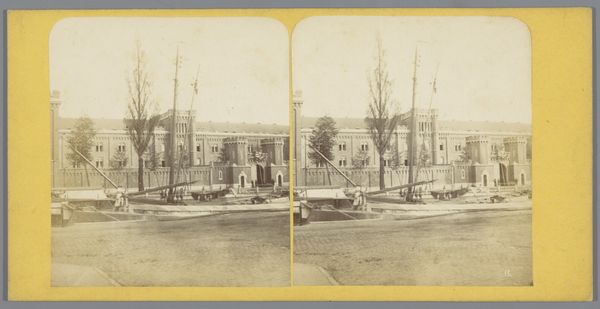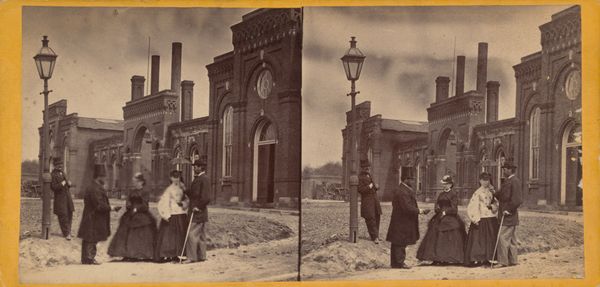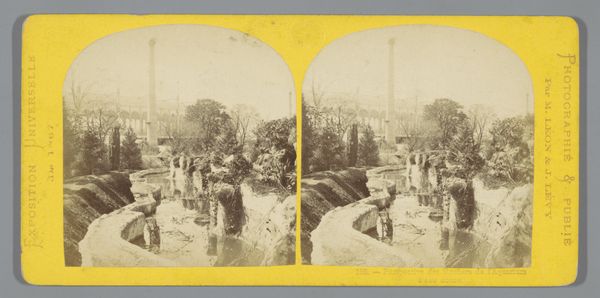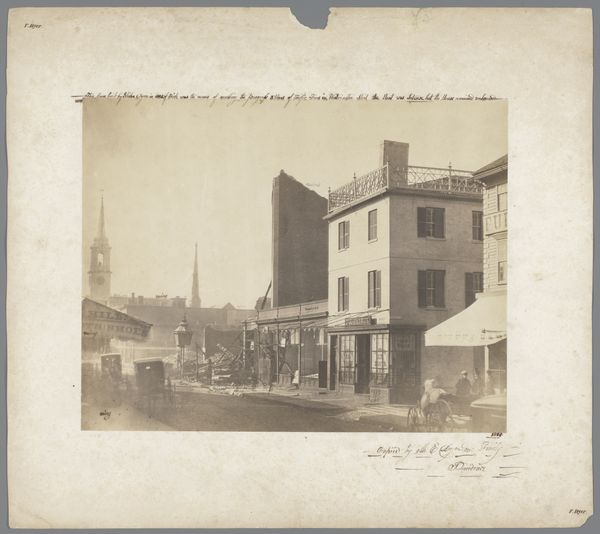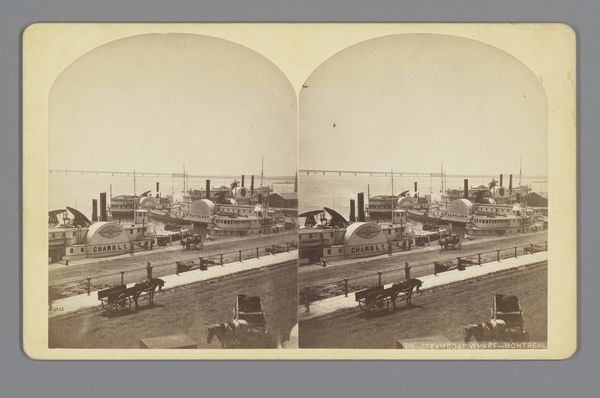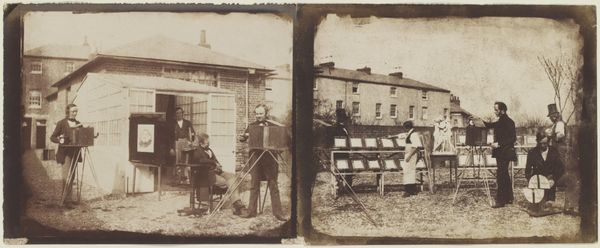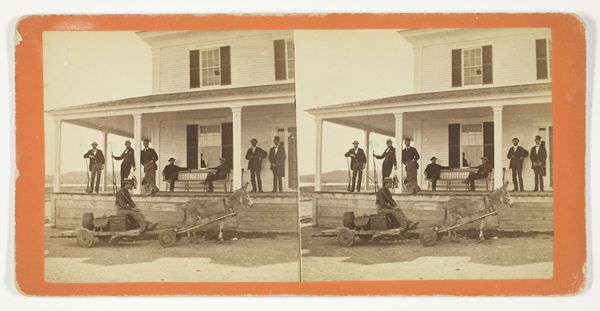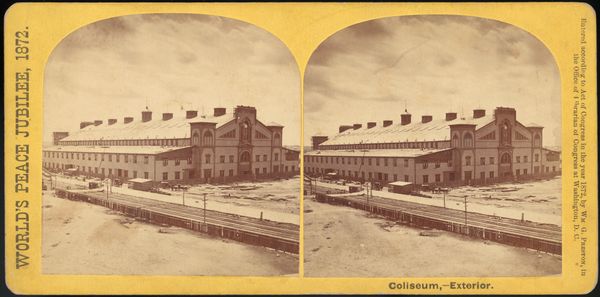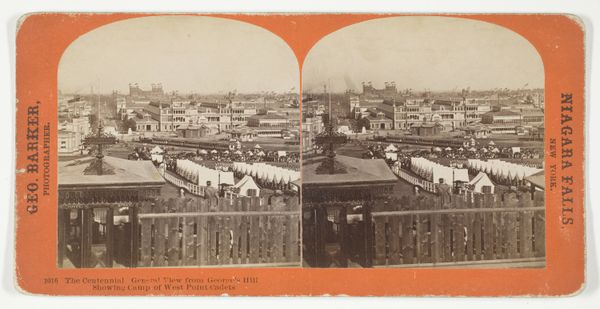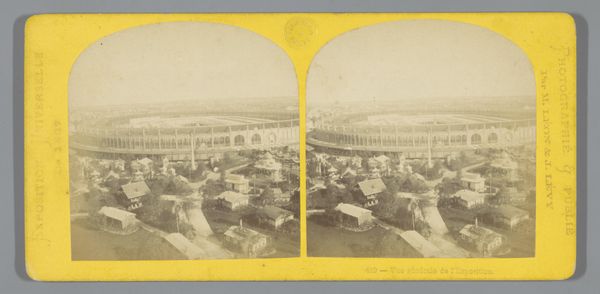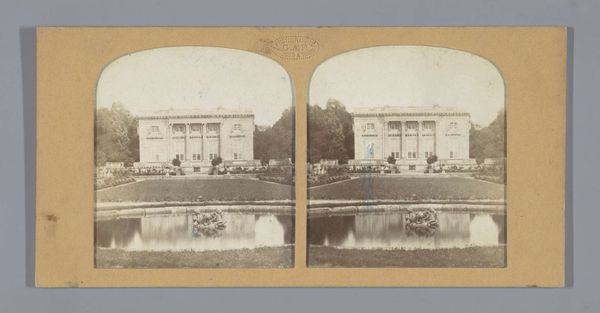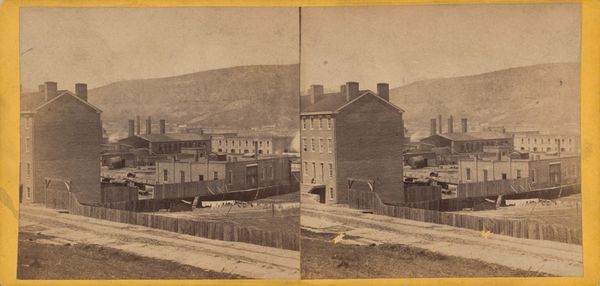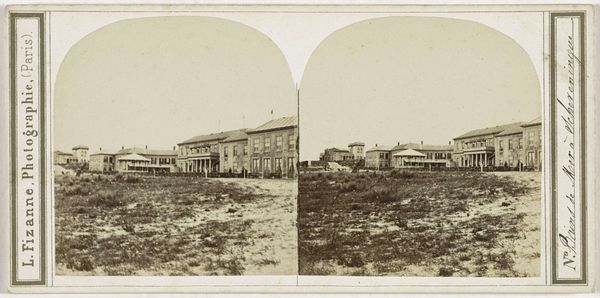
photography, gelatin-silver-print
#
photography
#
gelatin-silver-print
#
cityscape
#
realism
Dimensions: image/sheet: 7.6 × 8 cm (3 × 3 1/8 in.) image/sheet: 7.5 × 7.9 cm (2 15/16 × 3 1/8 in.) mount: 8.2 × 17 cm (3 1/4 × 6 11/16 in.)
Copyright: National Gallery of Art: CC0 1.0
Editor: So this is "Standard Petroleum Refinery, Pittsburg, Pennsylvania," a gelatin-silver print from around 1865 by Thomas H. Johnson. It looks pretty calm, considering it's a picture of a refinery. All the barrels lined up so neatly… How do you interpret this work? Curator: Calm, yes, but that’s precisely what draws me in. Look at the barrels themselves—these repeated cylindrical forms evoke both the potential and the threat inherent in the substance they contain. Don’t you find it striking how those uniform shapes seem to mimic, or perhaps mock, the architectural rigidity of the building itself? The photographic image has the ability to preserve historical memory, and these images remind us of our reliance on finite resources that extract an environmental toll. Editor: I hadn’t thought about it that way. So the barrels almost represent a tension, then, between order and potential chaos? Curator: Exactly! Oil in those barrels represented energy, and economic prosperity, for some, but at what cost? I mean, what could be a better way to represent both power and precariousness? This particular image hints at the massive transformations brought on by industrialization after the Civil War, but what symbols speak to you most clearly? Editor: I guess I'm mostly drawn to the activity of the figures working, loading those barrels. I hadn't noticed before, but the refinery staff is all male, pointing towards economic change, new divisions of labour. How does this connect to social memory? Curator: Yes, this image also alludes to labour rights and environmental regulations as this era marks the start of both movements to reform industrial economies. Thanks for pointing this out; those small details reveal major transitions. Editor: I guess it’s about more than just barrels. Thank you, I now understand it’s actually about work, environmentalism, industrialisation. Curator: Indeed. Each barrel contains layers of meaning far beyond just oil, revealing stories of progress, peril, and profound transformation.
Comments
No comments
Be the first to comment and join the conversation on the ultimate creative platform.
